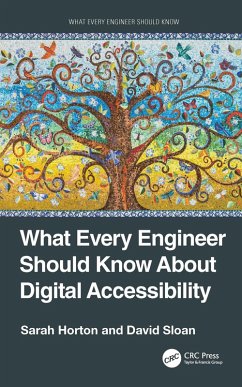Accessibility is a core quality of digital products, to be deliberately addressed throughout the development lifecycle. What Every Engineer Should Know about Digital Accessibility will prepare readers to integrate digital accessibility into their engineering practices.
Dieser Download kann aus rechtlichen Gründen nur mit Rechnungsadresse in A, B, BG, CY, CZ, D, DK, EW, E, FIN, F, GR, HR, H, IRL, I, LT, L, LR, M, NL, PL, P, R, S, SLO, SK ausgeliefert werden.


